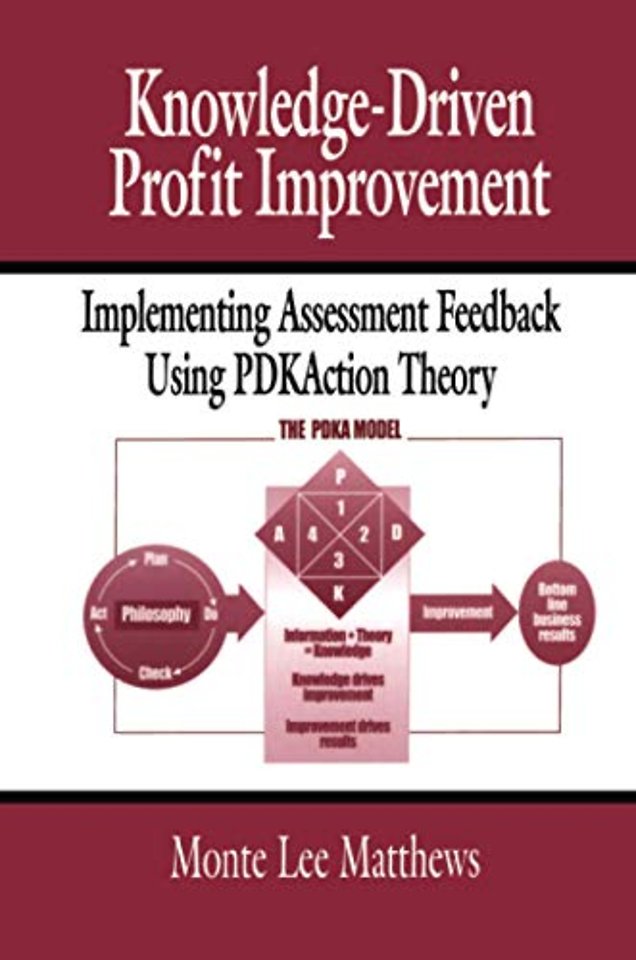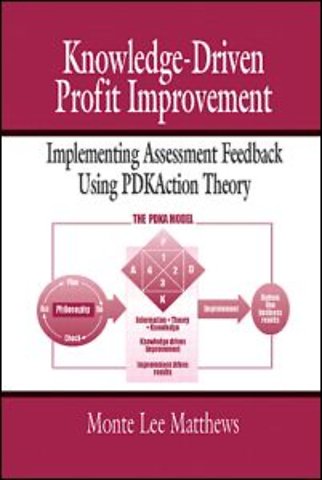Knowledge-Driven Profit Improvement
Implementing Assessment Feedback Using PDKAction Theory
Samenvatting
This book presents an innovative and radically logical way of thinking about organizational knowledge and competition that centers on discipline, integration and focus. By tapping into the previously unrealized strengths that lie in all companies, the author suggests that it is possible for companies to move beyond informational chaos to create focused and enticing new opportunities.
The 12 step method presented in the first five chapters show you how to take information from feedback from assessments, surveys and audits, convert it into usable knowledge and get bottom line improvements. The strategy expands the plan-do-check-act (PDCA) model into a Plan-Do-Knowledge-Act (PDKA) process. The case studies provided reinforce the principles and the theory behind them.
Significant challenges face any organization intent on becoming world-class by managing knowledge effectively. They can be classified into four types: making use of your information by integrating it, organizing the different forms of information into a manageable framework, focusing equal attention on your strengths and your weaknesses, developing decision-making criteria based on key company drivers.
The12 steps outlined in Knowledge-Driven Profit Improvement: Implementing Assessment Feedback Using PDKAction Theory will show you how to make your company into a world-class organization.
FeaturesAssists companies in becoming more competitive
Serves as a guide for companies to use when taking their feedback from assessments, surveys, and audits, then integrating the feedback, and prioritizing it so that financial and operational improvements can be made
Allows companies to use the information they have been accruing for years
Helps companies establish better business priorities for the purpose of better planning
Demonstrates the significance of improvements made by using the information gained from assessments
Contents
Preface
The Logic and Philosophy Behind the PDKA Model
Turning Knowledge into a Corporate Asset
The Importance of Bottom-Line Results
Using PDKA to Implement Assessment Opportunities
How World-Class Companies Demonstrate the Principles of the PDKA Process
How Three Quality Award Programs Implement Principles of PDKA - The President of the United States Quality Award, the United Way's Excellence in Service Quality Award, and the Northern Ireland Quality Award
How Three World-Class Private Manufacturing Companies Implement Principles of PDKA - Milliken Denmark, Pal's Sudden Service, and Ulster Carpet Mills
How Two World-Class Private Service Companies Implement Principles of PDKA - BI Performance Services and British Telecom Northern Ireland
How Two World-Class Service Organizations Implement Principles of PDKA - Royal Mail and the United Way of Middle Tennessee
How Three World-Class Government Service Organizations Implement Principles of PDKA - Federal Supply Service Northeast and Caribbean Region, Tennessee Valley Authority's Fossil & Hydro Power, and National Aeronautics and Space Administration's Kennedy Space Center
How Two World-Class Military Service Organizations Implement Principles of PDKA - Red River Army Depot and U.S. Army Armament Research, Development and Engineering Center, Picatinny Arsenal
References
Index







